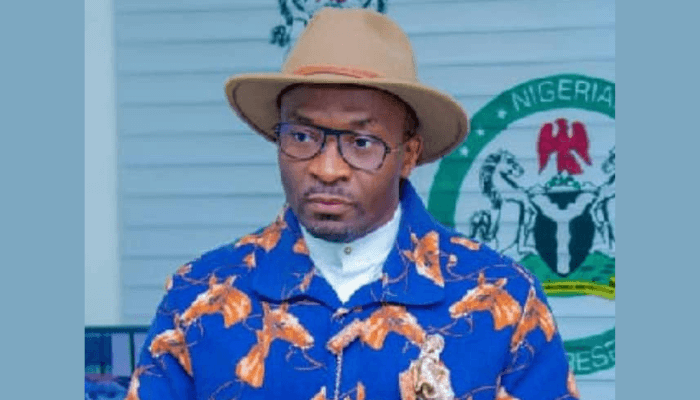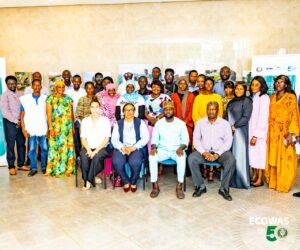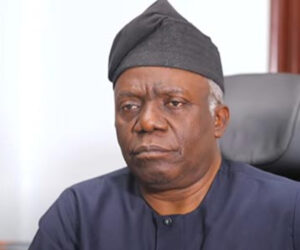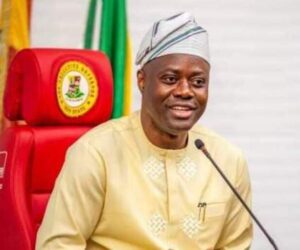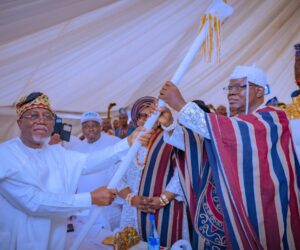…transformational, not transactional leadership will redeem Africa, says Wike
With over $4.6 billion in tech start-up investments flowing into Nigeria since 2020 and a rapidly expanding youth population driving innovation, Africa is well-positioned to capitalise on the $3.4 trillion market potential of the African Continental Free Trade Area (AfCFTA), according to Benjamin Kalu, Deputy Speaker of the House of Representatives.
He said the continent’s growing connectivity and entrepreneurial energy present a unique opportunity to transform Africa into a unified, competitive economic powerhouse.
Kalu, who was represented by Wole Oke, a lawmaker, spoke at the 2025 Innovate Africa Conference held at the ECOWAS Secretariat in Abuja on Thursday, reflecting on Africa’s mixed progress since the end of apartheid and the dawn of globalisation.
He noted that while Africa has recorded major milestones in connectivity, innovation, and trade, the continent still faces structural weaknesses that limit inclusive growth.
“Africa today is more connected than ever before. We have the fastest-growing youth population in the world, with 60 percent of Africans under 25. Nigeria alone has attracted over $4.6 billion in tech start-ups and investments since 2020,” he said.
Kalu cited the African Continental Free Trade Area (AfCFTA) as a game-changing initiative that could unlock a single market of 1.3 billion people and a combined GDP of $3.4 trillion.
However, he cautioned that Africa’s economies remain “dangerously dependent” on a narrow range of exports and growth drivers.
“Manufacturing still accounts for only 10 percent of GDP far below the 25 percent target,” he said.
“Our infrastructure deficit, estimated between $30 billion and $170 billion annually, costs us about 2 percent of GDP growth every year.”
He described this as Africa’s enduring paradox, growth without transformation, opportunity without diversification, and potential without productivity.
“The challenge of Africa is not just to grow, it is to transform. It is not just to export more, it is to diversify. It is not just to participate in the global economy, it is to shape it”, Kalu said.
He urged African governments to muster the political will to make the difficult choices required for industrialisation, skills development, and institutional reform
Also speaking, Nyesom Wike, minister of the Federal Capital Territory (FCT), said that Africa’s struggle with underdevelopment is rooted in a pervasive culture of transactional and mediocre leadership that prioritises personal gain over public service.
Wike said the continent’s enormous natural wealth and human potential have been stifled by self-serving politics and weak governance systems that have failed to translate resources into shared prosperity.
“Africa today stands at a historic crossroads. On one hand, we are blessed with immense natural wealth, youthful energy, and creative potential; yet we continue to grapple with weak institutions, infrastructural decay, poverty, and widespread unemployment. This is the paradox of our age how can a continent so richly endowed remain so constrained?” Wike declared in his keynote address titled ‘Reimagining Africa’s Leadership and Investment.
The former Rivers State governor lamented that since independence, Africa’s political trajectory, whether under military or civilian rule has often been shaped by conspiracies and personal ambitions detached from the national interest.
“Our post-independence experience has been one of groping in the dark. Many leaders emerged unprepared for the weight of national responsibility. Consequently, we keep experimenting with the fundamentals of development—basic infrastructure, healthcare, credible institutions, and functional economies. The result has been decades of missed opportunities”, he said.
Wike called for a shift from transactional leadership, driven by patronage, short-term gain, and power politics to transformational leadership anchored on vision, courage, and accountability.
“The time has come to move beyond transactional leadership to embrace transformational governance that empowers rather than exploits, serves rather than rules, and builds rather than blames,” he said.
He urged African leaders to rediscover the ethos of servant-leadership defined by empathy, humility, and a shared sense of responsibility.
“Africa needs servant-leaders, not bosses who command, but mentors who inspire. Leadership is not about power or position; it is about trust, service, and shared purpose,” he added.
Citing Abuja’s ongoing infrastructural renewal, Wike said tangible progress is possible when political vision is matched with accountability and commitment.
“In Abuja, we have seen how infrastructural renewal, anchored on commitment and accountability, can redefine a city’s identity and inspire public confidence. Roads once impassable now connect communities, and abandoned spaces now thrive with enterprise”, he said.
Wike also commended President Bola Tinubu’s “courageous and reform-driven leadership,” particularly his decision to remove fuel subsidy, an unpopular policy he said previous administrations lacked the will to implement.
According to him, Tinubu’s drive to decentralise governance, devolve development through regional commissions, and strengthen security institutions represents a decisive step toward genuine national transformation.
“Leadership remains the fulcrum upon which the destinies of nations turn. When leadership is visionary, accountable, and courageous, even the most daunting obstacles can be transformed into opportunities,” Wike said.
Read also: FG approves $1 billion for Lagos ports upgrades
In her opening address, Uloma Onyebuchi, president and founder of Innovate Africa Corporation, said Africa’s transformation must begin internally, with Africans taking ownership of their development narrative and rejecting dependency on foreign models.
“Africa’s development story must be written by Africans themselves. Sustainable progress starts from within with governance that inspires trust, technology that connects us, and leadership that empowers communities”,
she said.
Describing Innovate Africa as more than a conference, Onyebuchi said the initiative represents a movement to celebrate African excellence, amplify local innovation, and challenge outdated systems that limit the continent’s potential.
“This isn’t just another event. It’s a movement that celebrates African excellence, amplifies local innovation, and challenges us to think boldly about the future we are building together”, she told delegates.
She called for deeper collaboration across sectors and nations, stressing that Africa’s growth would accelerate through shared ideas, digital inclusion, and visionary leadership that empowers the next generation.
“The future of Africa depends on our ability to collaborate to turn ideas into impact and innovation into purpose.
“Let’s make today a celebration of Africa’s potential and a reminder that the future truly begins here”, Onyebuchi said.
This year’s edition of Innovate Africa, themed “Reimagining Africa’s Leadership and Investment,” focused on redefining the continent’s leadership model and harnessing its youthful population to drive industrialisation and sustainable development.

